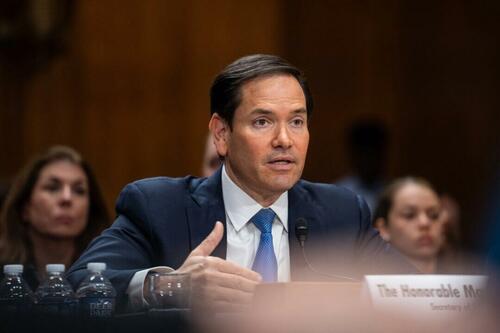
Secretary of State Marco Rubio confirmed on Tuesday that the U.S. Agency for International Development (USAID) has officially ceased operations. The decision, which follows a rapid dismantling process initiated by the Trump administration earlier this year, marks a significant shift in U.S. foreign aid strategy. Rubio announced the closure in a blog post on the State Department’s website, criticizing the agency for its lack of tangible results and its role in what he described as the “globe-spanning NGO industrial complex.”
“USAID has little to show since the end of the Cold War,” Rubio stated. “Development objectives have rarely been met, instability has often worsened, and anti-American sentiment has only grown. On the global stage, the countries that benefit the most from our generosity usually fail to reciprocate.” As of July 1, the agency “will officially cease to implement foreign assistance,” with only programs aligning with the Trump administration’s priorities continuing.
Controversy and Opposition
The announcement has sparked significant controversy. Democrats and unions representing foreign service workers have strongly opposed the dismantling of USAID, arguing that it would lead to a reduction in aid to impoverished countries and endanger lives. The American Foreign Service Association, which has filed a lawsuit against the Trump administration, warned that the closure would diminish the U.S.’s global standing and its ability to wield “soft power.”
“Rather than engage in constructive conversations to lessen the devastating impact of these layoffs, the administration chose instead to inflict maximum pain and hardship through a barrage of questionable—and likely illegal—policies,” the association stated. This criticism underscores the broader debate over the role of U.S. foreign aid and the implications of shifting towards a more isolationist policy.
Expert Opinions and Analysis
Meanwhile, a controversial analysis published in The Lancet claimed that the closure could lead to catastrophic outcomes, estimating that “14 million people could die over the next five years” due to the cessation of USAID funding. The analysis also highlighted that from 2001 to 2021, “USAID-funded programs prevented nearly 92 million deaths across 133 countries,” according to NBC News.
Experts have debated these figures, with some arguing that the impact of USAID has been overstated, while others emphasize the critical role the agency has played in global health and development. The closure of USAID raises questions about the future of U.S. involvement in international development and humanitarian efforts.
Political Reactions and Future Implications
Some Republicans have welcomed the announcement, aligning it with the “America First” policy. The GOP members of the House Foreign Affairs Committee expressed their support on social media, thanking President Trump and Secretary Rubio for their leadership. This development follows Rubio’s directive to U.S. embassies worldwide to terminate all remaining USAID staff, a move that has faced legal challenges.
Earlier this year, the Department of Government Efficiency identified USAID as a target for dismantling, part of a broader initiative to reduce perceived fraud, waste, and abuse within the federal government. The Trump administration contends that the reorganization plan was already in motion before a federal judge temporarily blocked an executive order for mass firings at multiple federal agencies.
The closure of USAID represents a pivotal moment in U.S. foreign policy, with potential long-term consequences for international relations and global aid efforts. As the debate continues, the future of U.S. foreign assistance remains uncertain, with implications for both domestic and international stakeholders.






